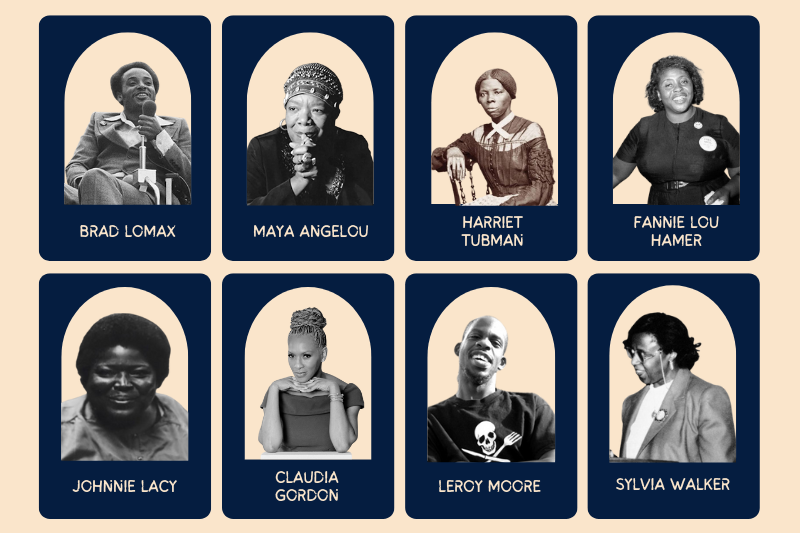Exploring the Intersection of LGBTQ+ and Disabilities
As we celebrate Pride Month, it’s important to look at the unique experiences and challenges faced by people who are both LGBTQ+ and who have disabilities. They often deal with multiple layers of discrimination while also showing resilience and strength, which make all of our communities richer and more diverse.
Understanding the Intersection
The Human Rights Campaign shares that LGBTQ+ folks are more likely to have a disability than the general population. This means it’s extra important to create inclusive and accessible spaces for these communities.
This is one of the reasons the Northern Nevada Center for Independent Living has supported LGBTQ-focused peer support groups, and we also partner with other local agencies that provide these services. We’re happy to connect you with these and other agencies that can help you address your specific needs.
- Nevada 211 shares resources throughout the state, including community centers, advocacy, support, help lines and social clubs.
- Northern Nevada HOPES is an LGBTQ-friendly clinic that offers a wide range of programs from medical services to shelters for the unhoused.
- Our Center in Reno offers a number of groups specific to seniors, including: Senior Coffee Time, Out and About Seniors Group and LGBtQ+ Veterans Peer Support Group. Visit OurCenterReno.org/Programs for more information.
- The Nevada Dept. of Health & Human Services Aging and Disabilities Services Division offers a number of resources for the LGBTQ+ population.
Unique Challenges
- Healthcare Access: LGBTQ+ people with disabilities often struggle to get the right healthcare. Discrimination in medical settings can make them hesitant to seek the care they need, leading to worse health outcomes. Plus, healthcare providers might not fully understand the specific needs that come with being both LGBTQ+ and having a disability.
- Mental Health: The mix of ableism and homophobia or transphobia can take a big toll on mental health. LGBTQ+ people with disabilities might experience higher levels of anxiety, depression, and other mental health issues because of the added societal stigma. It’s crucial to have support systems that understand and address these dual challenges to promote better mental well-being.
- Social Isolation: Both LGBTQ+ folks and people with disabilities can feel isolated. For those at the intersection, this isolation can be even more intense, as they might feel left out of both the LGBTQ+ community and disability-focused spaces. Creating welcoming environments for all identities is key to reducing this isolation.
- Economic Inequality: People with disabilities often face economic hurdles due to limited job opportunities and extra costs related to their disabilities. The added economic struggles faced by LGBTQ+ individuals, especially transgender and non-binary people, the financial challenges can be severe. Advocating for fair employment practices and financial support systems is essential.
Celebrating Resilience
Because of these challenges, LGBTQ+ people with disabilities can be powerful advocates and change-makers. They bring unique perspectives and strengths to both communities, fostering a culture of inclusion and resilience. Here are a few ways we can celebrate and support them:
- Inclusive Events: Ensure that Pride events and disability-related activities are accessible to all. This includes providing ASL interpreters, wheelchair access, and sensory-friendly spaces.
- Amplifying Voices: Highlight the stories and achievements of LGBTQ+ individuals with disabilities. Representation matters, and seeing diverse role models can inspire and empower others.
- Policy Advocacy: Advocate for policies that address the intersectional needs of these communities. This includes supporting healthcare reforms, anti-discrimination laws, and funding for accessible housing and transportation.
- Community Building: Create spaces where LGBTQ+ individuals with disabilities can connect, share experiences, and support each other. Peer support groups, online forums, and community centers can be invaluable resources.
Moving Forward Together
By understanding and addressing the unique challenges faced by LGBTQ+ people with disabilities, we can build a world where everyone has the opportunity to live independently and thrive. Let’s continue to advocate for equality, accessibility, and inclusion for all, ensuring that everyone can take pride in who they are.
For more resources and support, please contact us at info@NNCIL.org or 775-353-3599. We’re here to help you navigate your journey towards independence and empowerment.



